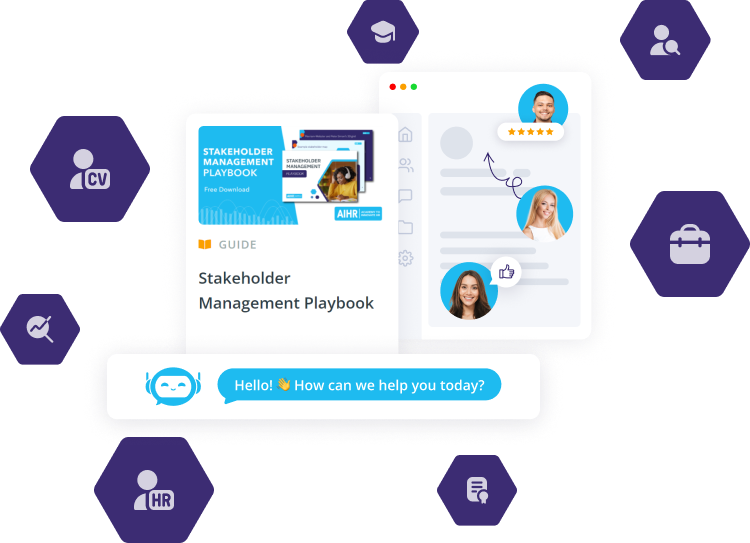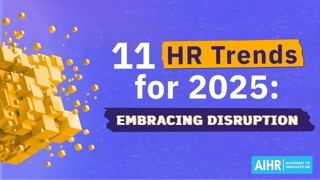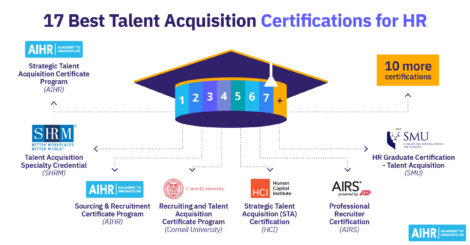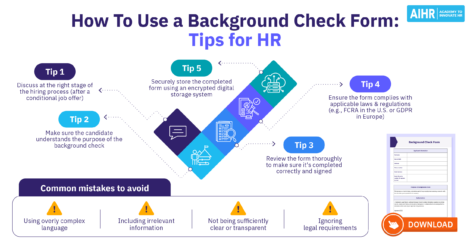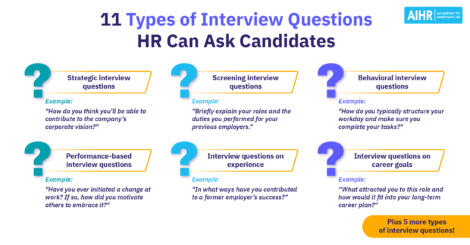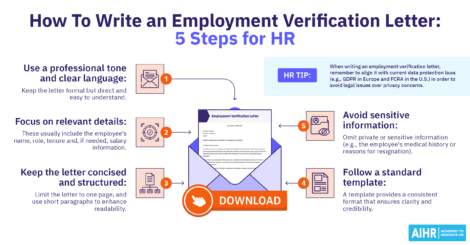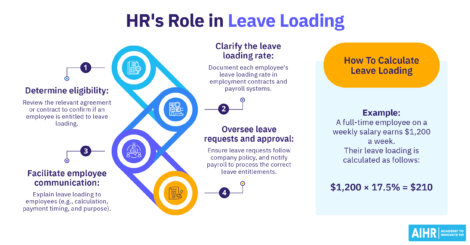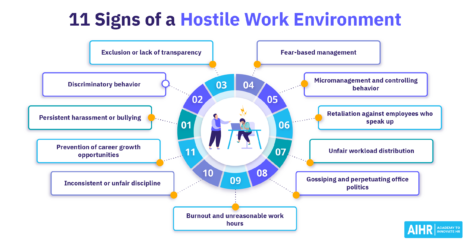27 Essential Conflict Interview Questions To Ask in Recruitment
U.S. author Max Lucado once said, “Conflict is inevitable, but combat is optional.” This applies to the workplace, too — while no organization can avoid conflict, good conflict management skills can prevent it from undermining business success.

88% of employees have witnessed or experienced low morale stemming from workplace conflict, with 53% feeling stressed and 45% reporting illness or absence as a result. These figures highlight the importance of conflict management skills at work, and conflict interview questions allow you to assess how candidates approach professional friction.
This article explains how such questions and answers can help companies cultivate a conducive work environment and a more productive workforce. It provides 27 sample conflict interview questions to help you in your recruitment process.
Contents
Why is workplace conflict management important?
The purpose and importance of conflict interview questions
27 conflict interview questions to ask candidates
Best practices to assess candidates’ conflict management skills
Why is workplace conflict management important?
How someone handles workplace conflict can either worsen or improve employee relations. Functional conflict can lead to growth, new ideas, and improvements, while dysfunctional conflict can affect employee morale, motivation, productivity, and retention.
Effectively managing workplace disputes assures employees the organization wants to preserve healthy professional relationships and harmonious working conditions. An environment of open communication and functional conflict encourages employees to seek common ground, improving dynamics and increasing productivity.
The purpose and importance of conflict interview questions
Good conflict management requires clear communication, emotional intelligence, and teamwork. Hiring people who handle conflicts well helps create a problem-solving culture and prevents future disputes.
Interview questions about conflict resolution help you assess how candidates handle challenges and disagreements in the workplace. These questions reveal whether they can stay professional, communicate effectively, and solve problems under pressure.
While conflict resolution is important in any job, it’s especially crucial for leadership and team-based roles. Leaders must mediate disputes, and team members must respect different opinions to work well together.
27 conflict interview questions to ask candidates
The following 27 conflict interview questions — categorized according to five types of workplace conflict — should give you a better idea of what to ask candidates in future interviews.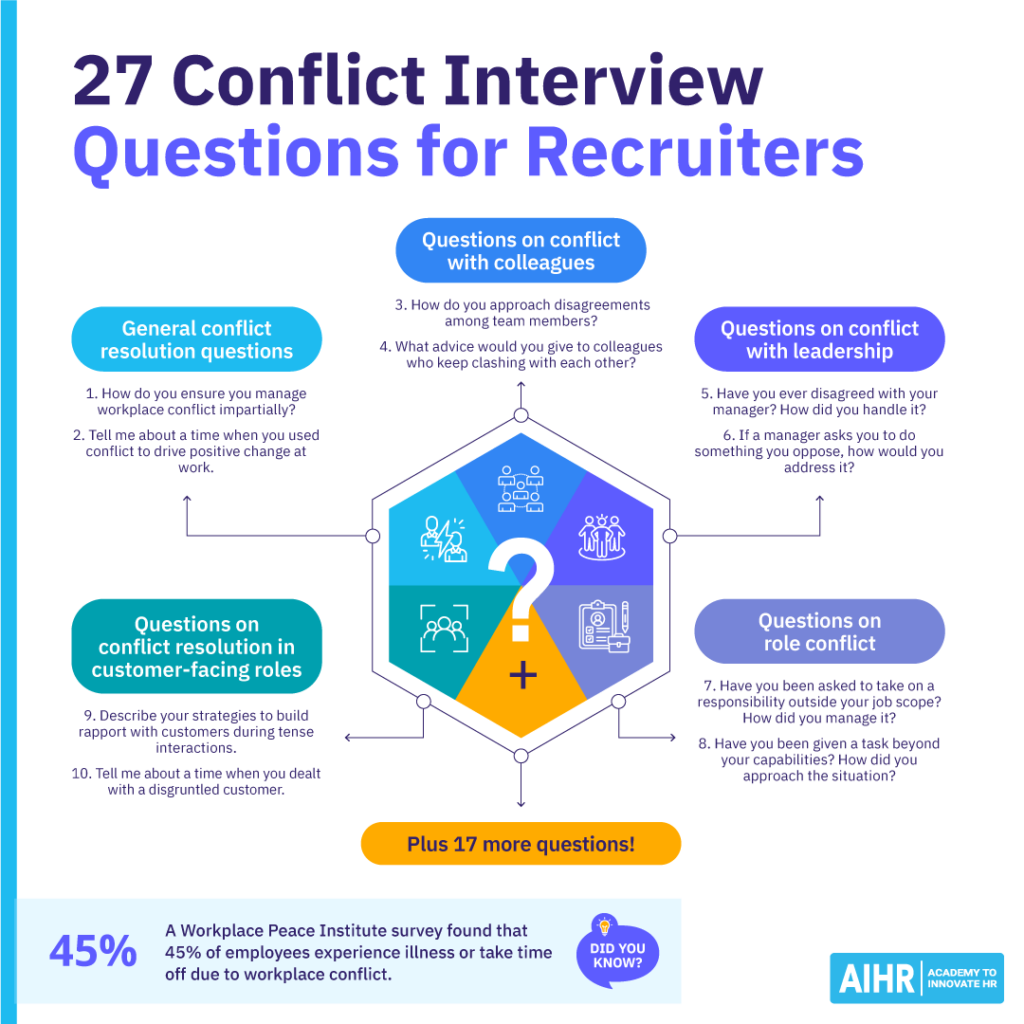
General conflict resolution questions
These questions evaluate how candidates handle workplace conflict, including their ability to navigate tough conversations, stay professional, and achieve positive outcomes. When they answer these questions, look for emotional intelligence, problem-solving skills, and composure in their responses, especially in de-escalating tense situations.
- Tell me about a time you successfully resolved a conflict at work. How did you go about it?
- How would you describe your role in handling workplace disagreements? Are you more of a participant, mediator, or observer?
- Describe a time you learned something valuable from a workplace conflict.
- What steps do you typically take to de-escalate emotionally charged situations at work?
- How do you ensure you manage workplace conflict impartially?
- Tell me about a time when you used conflict to drive positive change at work.
Questions on conflict with colleagues
Conflict management interview questions help evaluate how a candidate navigates relationships with their colleagues. These questions reveal how well a candidate works with others and builds consensus. Look for evidence of empathy, adaptability, and savvy communication skills.
- How do you approach disagreements among team members?
- Can you cite an instance when you were at odds with a teammate? How did you overcome it?
- Have you ever had to work closely with someone you found difficult to interact with? How did you deal with it?
- If certain members of your team are not fulfilling their responsibilities, how would you address it?
- What advice would you give to colleagues who keep clashing with each other?
Learn the techniques to help you master candidate interviews
Develop your skills as an expert recruitment interviewer to attract and narrow down top talent. Interview success depends on asking the right questions, assessing both skills and cultural fit, active listening, and providing a positive candidate experience.
AIHR’s Sourcing and Recruitment Certificate Program will teach you how to maximize candidate quality and prevent mishires with the best screening techniques for interviews, how to support hiring managers, and manage recruitment evaluations.
Questions on conflict with leadership
Interview questions about conflict with managers or leaders help discern how candidates view and express themselves to authority, handle conflicts of interest, and make difficult choices. Observe whether they’re open to constructive criticism and if they can maintain respect for leadership while upholding their personal and professional values.
- Have you ever disagreed with your manager? How did you handle it?
- Explain a situation when you disagreed with a procedure or policy. Did you confront it or keep quiet? Why?
- If a manager asks you to do something you oppose, how would you address it?
- Have you ever challenged authority? Why, and how did you do it?
- Explain how you’d deal with negative employee feedback from a supervisor.
Questions on role conflict
Role conflict occurs when employees face conflicting demands or multiple responsibilities. A candidate’s responses reveal their work ethic, ability to prioritize, and approach to balancing tasks. Look for strong communication, delegation, and time management skills, as well as the ability to set clear expectations and boundaries.
- Have you been asked to take on a responsibility outside your job scope? How did you manage it?
- Have you ever had the opportunity to work on a career-enhancing project that took valuable time away from your regular duties? How did you deal with this?
- Have you been given a task beyond your capabilities? How did you approach the situation?
- How would you handle reporting to multiple supervisors and trying to meet their competing expectations?
- If you were supposed to be in separate meetings at coinciding times, how would you decide which one to prioritize?
- What techniques do you use to manage stress and maintain a positive attitude when you feel overwhelmed at work?
Questions on conflict resolution in customer-facing roles
Employees who deal directly with customers can expect to encounter conflict regularly and must moderate customer frustration with empathy and diplomacy. The answers to these questions demonstrate a candidate’s ability to communicate effectively, manage their emotions, establish credibility, and negotiate contentious conversations.
- Describe a time when you had to persuade a customer to pick a different option. What steps did you take, and what results did you see?
- How do you convince customers you empathize with them when trying to address issues they’ve flagged to you?
- Describe your strategies to build rapport with customers during tense interactions.
- Have you ever handled a complaint with exceptional service that turned a displeased patron into a satisfied customer? How did you do it?
- Tell me about a time when you dealt with a disgruntled customer.
Best practices to assess candidates’ conflict management skills
The hiring process is your chance to see how candidates handle workplace conflicts. The right questions help you find those who manage conflict constructively and rule out those who escalate or avoid it. When asking conflict-related questions, pay attention to how candidates describe past conflicts to get deeper insight into their conflict management styles and skills.
This starts with evaluating the examples candidates give when responding to an interview question about conflict.
Look for:
- A relevant situation
- Their role in the conflict
- The actions they took to resolve it
- The results—positive, negative, or neutral
- Whether the outcome met expectations.
Candidates will also likely display key traits that indicate strong or weak conflict management skills. These include the following:
Strong conflict resolution skills
- Addresses conflict directly and professionally
- Communicates clearly and stays positive
- Listens actively and considers other viewpoints
- Stays calm under pressure
- Sets boundaries and avoids emotional outbursts
- Accepts feedback and learns from mistakes
- Focuses on solutions and compromise
- Aligns with your company’s approach to conflict.
Red flags
- Gives vague or generic answers with no actual examples
- Blames others and avoids accountability
- Avoids conflict or lacks confidence in handling it
- Acts overly competitive, judgmental, or aggressive
- Struggles to control emotions
- Turns small disagreements into bigger issues
- Has a pattern of conflicts with coworkers or managers
- Shows poor teamwork or holds grudges.
To sum up
Choosing the right candidates means looking beyond technical skills and assessing how they handle workplace challenges and conflict. How employees approach disputes affects team dynamics, productivity, and morale. Targeted conflict interview questions can help identify those who resolve disputes constructively and eliminate those who escalate or avoid them.
Also, a structured approach to conflict-related interview questions helps ensure you hire individuals who communicate clearly, stay professional under pressure, and maintain a positive work environment. The right hires will not only prevent unnecessary workplace friction but also help drive collaboration and problem-solving, strengthening both their teams and the company.
Learn more
Related articles
Are you ready for the future of HR?
Learn modern and relevant HR skills, online

